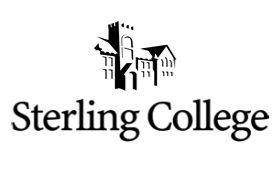Sterling College Offers Game Theory Class

This spring the Sterling College math department is offering a game theory class as part of its “Special Topics” series. According to Assistant Professor of Mathematics Daniel Callahan, who is teaching the course, this is unusual. “All three of the ‘Special Topics’ courses we are offering are not usually available at smaller schools. In order to take a game theory class, a student might have to attend K-State or leave the Midwest altogether,” said Callahan.
The course was created over a period of two years and involved a lengthy textbook search. Fifteen books made it onto Callahan’s personal bookshelf; several more made it into the College’s library collection; and three made it into the course as required textbooks. “The goal of the course is to examine applied game theory rather than the mathematics behind it exclusively; that way, we could open the course to anyone who had passed college algebra and was interested in the analysis of situations of conflict and cooperation,” said Callahan.
In fact, one of the students in the class, Leonore Enfield of Raymond, Kan., is a biology major. “Game theory has scientific applications that will help me in the long run as well as through the rest of my college years,” said Enfield. “I can already apply what I have learned these first three weeks to my daily life. It’s fun to be able to see other perspectives and find that there is a world of solutions that I never even knew existed. This class is broadening my base of problem-solving skills.”
The problem-solving aspect of the class is why Callahan wanted to offer it at Sterling—and to teach it himself. “It’s a mix of pure math and applied economics, and it can be applied to such diverse areas as business, biology, international relations, trade relations, anthropology and sports.”
Hutchinson native Natalie Casey, a math minor, agrees. “It is a very interesting and fun way to incorporate math into useful scenarios.”
Professor Callahan is already seeing a difference in his students’ problem-solving skills. “They are thinking more analytically. By week ten, I suspect they will find themselves applying game theory to situations they never suspected.”
Game theory is the second of three “special topics” courses offered by the Sterling College math department. The first, on partial differential equations, was taught by Assistant Professor of Physics Dr. Johnson Agbo last spring, and the third course, which will focus on technology use in the classroom for math education majors, will be offered next year and taught by Math Department Chair Dr. Beth Kilday. “These classes introduce interesting mathematical topics to our students,” said Callahan, “and they also raise the academic profile of the math and physics department and Sterling College in general.”
Sterling College is a four-year, Christ-centered, liberal arts college located in Sterling, Kansas, with a mission “to develop creative and thoughtful leaders who understand a maturing Christian faith.”


